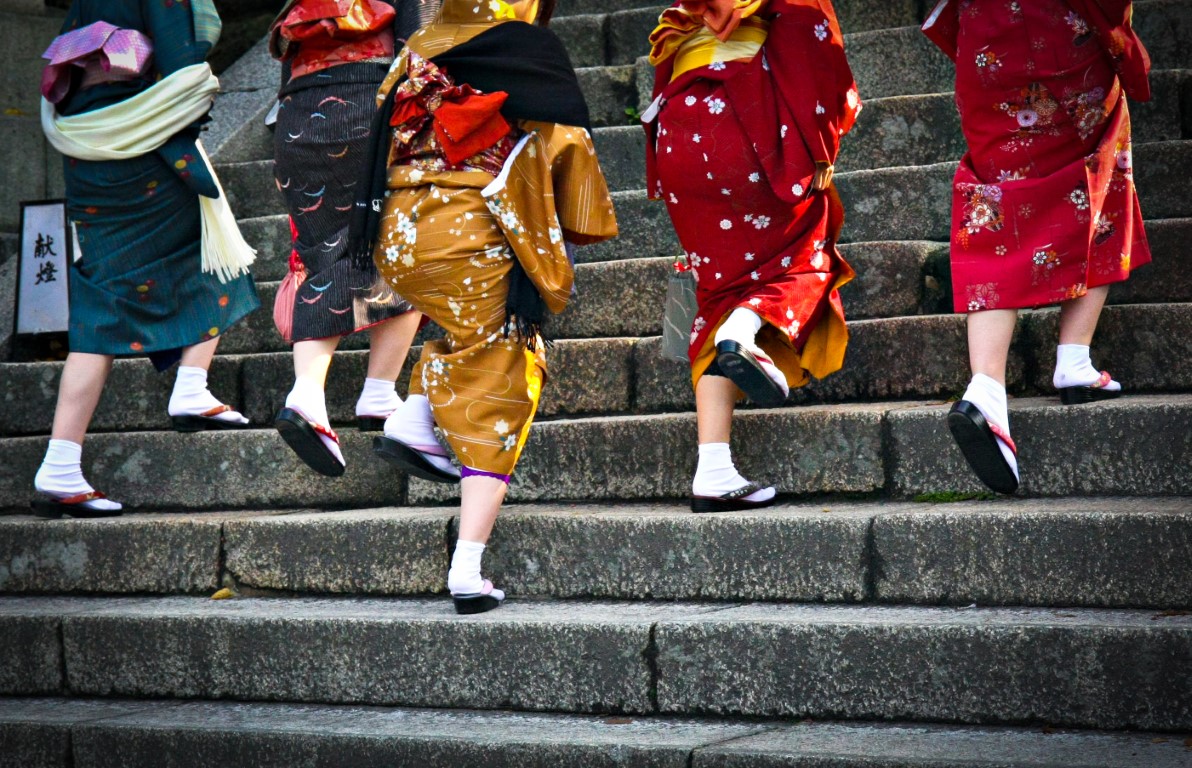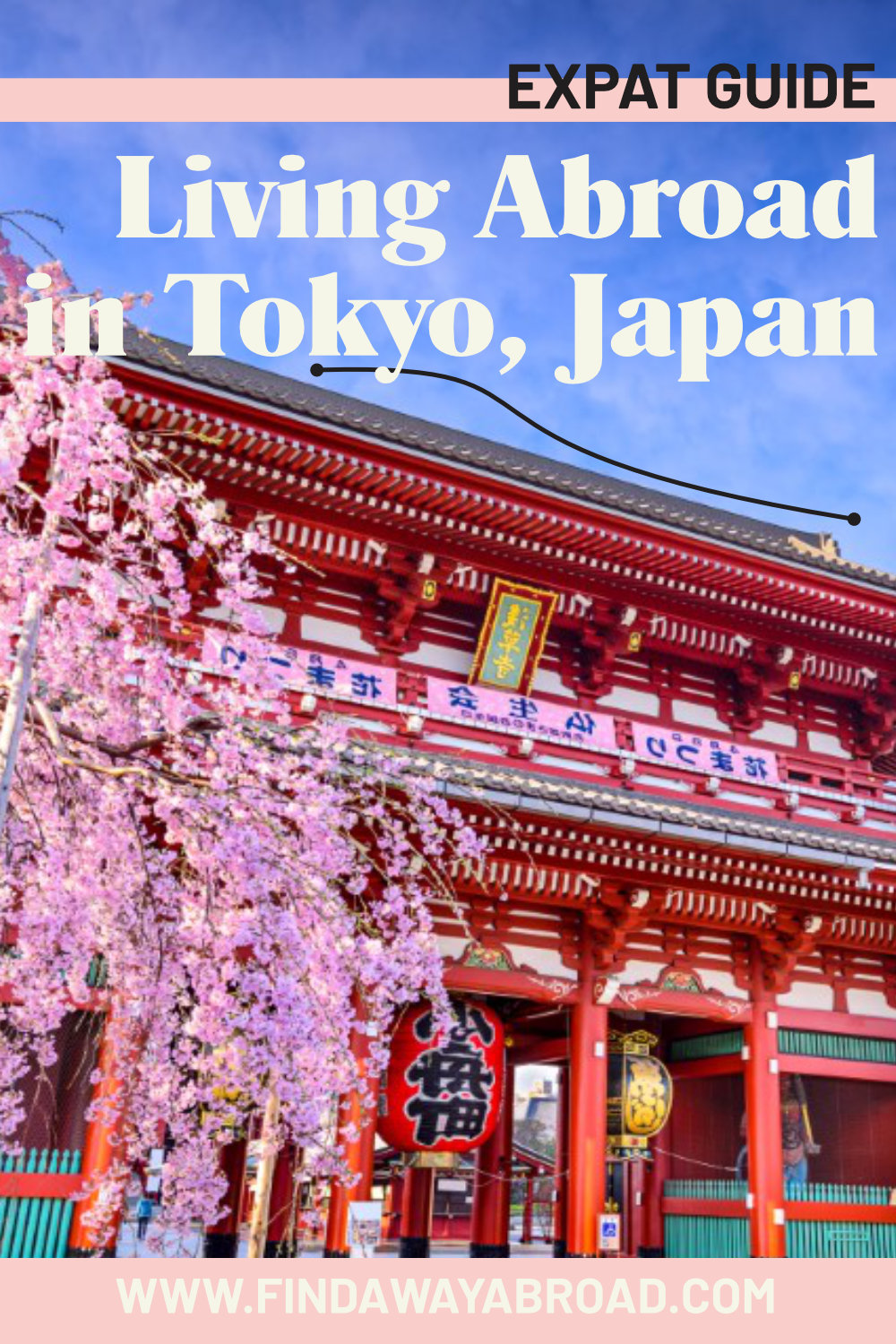Tokyo, Japan is undoubtedly one of the most famous cities in the world, boasting a rich history and yet constantly evolving, making it an exciting city to live in as there’s always something to see and do.
After 8 years of living in Tokyo, I can say with confidence it's a super interesting city to call home, even for just a short while.
As the capital of Japan, it is the central business hub of the country, providing a wealth of job opportunities and making it a popular destination for both locals seeking work as well as expats. It is also home to some of the most prestigious universities in the country, which brings in many students from across the country and even those from around the world.
These are key reasons why this city of over 37 million people continues to grow yearly despite the population of Japan declining.
People may come to Tokyo because of opportunities but many grow to love the city and become proud “Tokyoites”.
So, if you're planning or simply dreaming of moving to Tokyo, here's what you need to know to settle in.
Short on time? Here’s the cheat sheet:
💭Moving to Tokyo is a great idea for those that are drawn to a face pace of life, a rich history, and a city that is constantly involving.
💰Tokyo is the most expensive city to live in Japan. The cost of living will vary based on your lifestyle but average rent hovers at around 80,000 yen (~$545 USD). Earn travel rewards on all expenses with a Capital One Venture Card.
🏠The best neighborhoods for expats are Shinjuku, Shibuya, Chiba, and Saitama.
🛏️Start off by booking somewhere central and easy to get around, like this studio apartment rental in Shinjuku.
📚Make your transition easier and get a headstart learning the language with Mondly.
🛂Most expats come to Japan on a working visa as English teachers but other options are the Working Holiday Visa, Spouse/Dependant Visa, or Student Visa.
☂️Rush hour seriously is crazy here and it can be tough to make local friends but…
🏙️Living in Tokyo means great public transportation, plenty of things to do, delicious food, and less of a language barrier than other places in Japan.
Cost of Living in Tokyo
Tokyo is the most expensive city in Japan when it comes to the cost of living. Since space is limited but demand is high, monthly rent for an apartment or house can cost thousands of dollars.
Despite Tokyo being a costly place to live nationwide, rent is still cheaper on average than in countries like Canada or the US, with the average rent hovering at around 80,000 yen (~$545 USD).
Adding to the housing expense, many landlords in Japan also ask for a monetary gift called reikin, which can cost up to three months’ rent.
On average, housing in Tokyo is around 64 square meters in size, which includes apartments and detached housing. To save money, some people live in very small apartments or share houses.
Some apartments, especially for singletons, can be as small as 10 square meters. This doesn't seem to be a problem though since many youth tend to use the apartment only for sleeping.
Best Areas of Tokyo to Live

Tokyo consists of 23 wards and people tend to reside wherever makes their commute to work the easiest. This means taking into consideration how crowded trains are during rush hour, the commute time, and the number of transfers.
Living inside the 23 wards in Tokyo can be expensive, though, especially along the JR Yamanote Line, the most often-used train line that circles the inner part of the city.
It can be costly to build a house in Tokyo since the land is among the most expensive in the country, which is one reason I decided to leave Tokyo and settle permanently in Osaka, another of the best cities to live in Japan.
Despite how pricey housing can be in Tokyo, things like healthcare and groceries are relatively affordable, helping to offset the cost of living.
Not ready to make the move to Tokyo but still want a taste of it? Kat, the founder of A Way Abroad, was recently gifted a TokyoTreat box and it perfectly satisfied her cravings of this stellar city. They change box themes each month so order it for a special occasion or monthly for a constant rotation of Japanese snacks.
Here are my top recommendations of areas to live in Tokyo:
Shinjuku
Shinjuku is one of the most popular areas for young people in Tokyo to live due to the bustling nightlife and access to popular shopping areas and restaurants. For many coming to Tokyo for the 1st time, quintessential Tokyo is represented in Shinjuku.
Kabukicho, the entertainment section of Shinjuku, is the best known part of the city but outside of there you’ll still find a plethora of bars, restaurants, shops, and things to do.
📍Before you decide to move to this neighborhood, I suggest you book a hotel or vacation rental for at least a night or two to get a real feel for it at all hours. This will give you the best chance to see if living in Shinjuku is a good choice for you.
- Budget Stay: Excellent Location: Conveniently located near the metro, this studio apartment has a small kitchen, patio, and private bedroom.
- Mid-Tier Stay: V.Close to Shinjuku Kabukicho: Moving to Tokyo with your family? This apartment offers 3 bedrooms and 1.5 bathrooms and a bigger kitchen.
- Luxury Stay: V.Close to Shinjuku Korean Town: Enjoy similar space as the other apartment but with a Japanese-style dining room and a large outdoor patio.
Shibuya
Shibuya is another of the popular areas for young people living in Tokyo for the same reasons that Shinkjuku is popular, plus it’s the epicenter of youth fashion in Japan. Areas like Harajuku are incredible for people watching and a really fun place to spend the day.
Shibuya Station and Shinjuku Station are also along the Yamanote Line.
📍Before you decide to move to this neighborhood, I suggest you book a hotel or vacation rental for at least a night or two to get a real feel for it at all hours. This will give you the best chance to see if living in Shibuya is a good choice for you.
- Budget Stay: Waclass Shibya: You’ll have everything you need in this apartment that certainly covers the basics and keeps you in the center of town.
- Mid-Tier Stay: Shibuya Tokyo Condo: A 6-minute walk from the famous Shibuya Crossing, it’s really hard to beat this location.
- Luxury Stay: Shibuya Apartment: Clean, bright, and perfectly located to explore Shibuya and beyond with all the amenities you’ll need for a great stay.
Chiba
Many families choose to live on the far west or east side of Tokyo. The prefecture most chosen in the east is Chiba. Here rent is more affordable and it’s easier to find daycare and areas more suited to raising children.
In the side of town closest to Tokyo, you’ll have a lot of developments, malls, and entertainment options. As you move farther away from the capital city, you’ll gain easier access to the beaches, fishing villages, and long coast.
📍Before you decide to move to this neighborhood, I suggest you book a hotel or vacation rental for at least a night or two to get a real feel for it at all hours. This will give you the best chance to see if living in Chiba is a good choice for you.
- Budget Stay: Homelike Hanazono: Located on the west side of Chiba, you’re not too far from Tokyo while already reaping the benefits of a lower cost of living for a large space.
- Mid-Tier Stay: Openair Bath: This 2-story home overlooks the Sea of Kam and is located in Kamogawa, Chiba, in one of the smaller coastal towns.
- Luxury Stay: Building C Maisonette: Also located in Kamogawa, this apartment is large, modern and offers bonus perks like a steam room, hot tub, and projector.
Saitama
The family-friendly prefecture on the west side of Tokyo is Saitama. Like Chiba, Saitama offers lower rent prices and more spacious housing options.
Saitama is landlocked and while it doesn’t offer access to the sea, there are plenty of rivers, mountains, and rolling hills still giving you and your family nature that’s pretty hard to find in Tokyo itself.
📍Before you decide to move to this neighborhood, I suggest you book a hotel or vacation rental for at least a night or two to get a real feel for it at all hours. This will give you the best chance to see if living in Saitama is a good choice for you.
- Budget Stay: Room - 1003: This apartment is small but has just what you’ll need to enjoy living in Tokyo without spending a pretty penny.
- Mid-Tier Stay: 4min to sta: Stay just outside of Tokyo on the southern border of Saitama. This apartment is spacious, clean, and well-equipped.
- Luxury Stay: Apartment //: Just outside the door, you’ll be in the Old Town of Saitama with plenty of Japanese history to soak up.
By the way, you'll notice the places I recommend you rent to get a feel for each neighborhood are on Vrbo, not Airbnb. Personally, I like Vrbo because you're able to cashback on each stay that you can then use on your next trip. Whereas with Airbnb, there are no rewards for users. But if you still prefer that platform, most rentals are on both Airbnb and Vrbo.
Basic Visa Options

The most common visa options for foreigners living in Japan are:
- Work Visa
- Working Holiday Visa
- Spouse/Dependent Visa
- Student Visa
Most expats come to Japan on a working visa, which is issued by their employer. More on specific job opportunities in the section below. Some also come to Japan on a spousal visa or a dependent visa.
International students, meanwhile, come to Japan on a student visa.
There are visas for specific purposes such as research, cultural activities, or skilled labor as well.
Jobs in Tokyo

Expats in Tokyo typically work as English teachers, professors, engineers, IT professionals, interpreters or translators, as well as staff in the tourism or service industries.
Those with high Japanese language skills have plenty of other job opportunities available to them.
Age Matters
One caveat to working in Japan, however, is that the older you are, the harder it can be to find a job.
Most people are hired straight out of university with the promise of lifetime employment at one company. Although this is changing and young people are starting to change jobs more often, it is still difficult to find work after a certain age, especially in your mid-30s.
Work Culture
The work culture can also be hard for expats due to cultural differences and language barriers. There is a tendency for people to work long hours due to demanding schedules, sometimes even sleeping at their company. This leads to poor work-life balance and is one key reason why people don’t want or can’t have families.
The good news is that this practice is slowly changing and more companies are starting to prioritize the well-being of their employees.
Benefits of Living in Tokyo

Tokyo is extremely convenient to live in for various reasons.
Great Public Transport System
Since it is the capital of Japan, it has one of the best subway systems in the world, making it easy to travel almost anywhere both within and outside the city. (I never quite managed to figure out the maze that is Shinkuju Station, though.)
Plenty of Events
The city is home to many events and festivals as well as world-famous theme parks like Tokyo DisneySea and Sanrio Puroland. You can never run out of things to do.
Fantastic Food
Tokyo is also one of the best cities worldwide for foodies. I’ve found that whenever I watch a show featuring food from around the world, Tokyo restaurants are always featured, and it's no surprise. You can get not only affordable and delicious Japanese food like all-you-can-eat shabu shabu or dine at a hole-in-the-wall izakaya but also dine at one of Tokyo’s many Michelin-starred restaurants or try cuisine from different countries.
When I was homesick for poutine, I was lucky enough to stumble on a food event being held in Roppongi, a popular area for expats, featuring poutine with real cheese curds. I don’t think I would have been able to find this anywhere else in the country.
Less of a Language Barrier
This paired with Tokyo being a major tourist destination is why it’s easier for people who can't speak Japanese to live in Tokyo. Unlike other cities in Japan, many signs and menus in Tokyo are in English. Universities such as the University of Tokyo, Waseda, and Keio also have strong international divisions and focus on providing several classes in English.
In this day and age, translation apps like Google Translate are very useful when it comes to understanding text on a package or communicating with someone. There’s also lots of helpful information about living in Japan in various languages online.
However, despite this, the language barrier can prove to be difficult for some people. This is why it is important to learn some Japanese before moving to the country. Having a strong grasp of the language can help significantly when it comes to job opportunities as well as adapting to everyday life in Japan and making local friends.
Before you move, I suggest you start learning the basics through Mondly (a language app) and then switch to an in-person language school once you arrive.
What I Wish I Knew Before Moving to Tokyo

Rush Hour Madness
I lived in Tokyo for seven years and throughout that time, I wish I had known just how crowded the train stations and trains themselves were during rush hour. I was not prepared! At some stations, train attendants even push people onto the train so that they can fit as many people as possible. For this reason, I recommend living near a station that’s the first stop of a train line or close to your workplace or school.
Not many people drive or have a car either as roads are crowded, parking is expensive, and housing with parking spots is limited.
Long Lines Happen
There are also long lines to popular restaurants and attractions, especially on the weekend. Coming from a small town in Canada, I couldn’t fathom why people had so much patience to wait for hours for something!
Challenges of Making Friends
Now that I live in Osaka, I think that it was harder for me to make close friends in Tokyo. That doesn’t mean I didn’t enjoy my time there, though, and I met a lot of wonderful people and had great experiences.
The best chance to make local friends will most likely be your co-workers. To meet foreign friends, rely on Facebook groups that organize expat meet-ups. It can be tiresome to put yourself out there but it's a necessary step to make friends abroad.
Will You Give Living in Tokyo a Try?
If you are young and want to have a once-in-a-lifetime experience residing in one of the most vibrant cities in the world, then I absolutely recommend moving to Tokyo.
While it's not always butterflies and rainbows abroad, living in Tokyo will become an experience unlike any other. You might end up like me and stay nearly a decade or maybe you just want to try it out for a year. Regardless of what brings you to Japan, it's hard to pass down the opportunity to live in one of the best cities in the world.










.png)
.png)